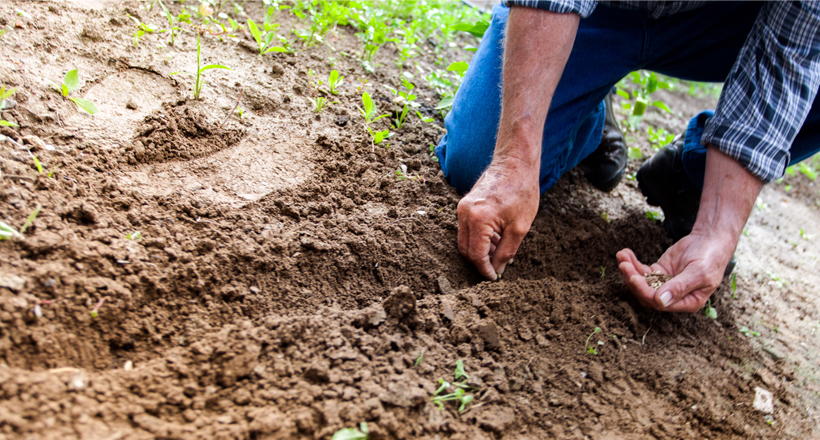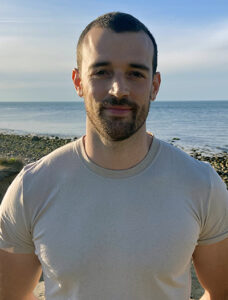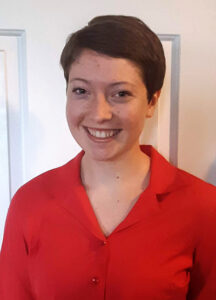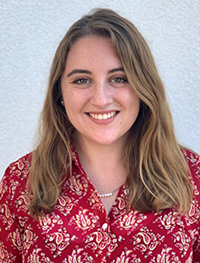FOOD & FARMING
Soils Could Be Affected by Climate Change, Impacting Water and Food
Rutgers-led study shows how increased rainfall can reduce water infiltration in soils
RUTGERS TODAY–Coasts, oceans, ecosystems, weather and human health all face impacts from climate change, and now valuable soils may also be affected.
Climate change may reduce the ability of soils to absorb water in many parts of the world, according to a Rutgers-led study. And that could have serious implications for groundwater supplies, food production and security, stormwater runoff, biodiversity and ecosystems.
The study is published in the journal Science Advances.
“Since rainfall patterns and other environmental conditions are shifting globally as a result of climate change, our results suggest that how water interacts with soil could change appreciably in many parts of the world, and do so fairly rapidly,” said co-author Daniel Giménez, a soil scientist and professor in the Department of Environmental Sciences at Rutgers University–New Brunswick. “We propose that the direction, magnitude and rate of the changes should be measured and incorporated into predictions of ecosystem responses to climate change.”
Water in soil is crucial for storing carbon, and soil changes could influence the level of carbon dioxide in the air in an unpredictable way, according to Giménez, of the School of Environmental and Biological Sciences. Carbon dioxide is one of the key greenhouse gases linked to climate change.
Giménez co-authored a study published in the journal Nature last year showing that regional increases in precipitation due to climate change may lead to less water infiltration, more runoff and erosion, and greater risk of flash flooding.
Whether rainfall will infiltrate or run off of soil determines how much water will be available for plants or will evaporate into the air. Studies have shown that water infiltration to soil can change over one to two decades with increased rainfall, and climate change is expected to boost rainfall in many areas of the world.
During a 25-year experiment in Kansas that involved irrigation of prairie soil with sprinklers, a Rutgers-led team of scientists found that a 35 percent increase in rainfall led to a 21 percent to 33 percent reduction in water infiltration rates in soil and only a small increase in water retention.
The biggest changes were linked to shifts in relatively large pores, or spaces, in the soil. Large pores capture water that plants and microorganisms can use, and that contributes to enhanced biological activity and nutrient cycling in soil and decreases soil losses through erosion.
With increased rainfall, plant communities had thicker roots that could clog larger pores and there were less intense cycles of soil expansion when water was added or contraction when water was removed.
The next step is to investigate the mechanisms driving the observed changes, in order to extrapolate the findings to other regions of the world and incorporate them into predictions of how ecosystems will respond to climate change. The scientists also want to study a wider array of environmental factors and soil types, and identify other soil changes that may result from shifts in climate.
The lead author is Joshua S. Caplan, a former Rutgers postdoctoral associate now at Temple University. Scientists at the University of California, Riverside, University of Kansas, Kansas State University and Colorado State University contributed to the study.



 Angel Alguera
Angel Alguera Daniel Gilkeson
Daniel Gilkeson Benjamin Goldberg
Benjamin Goldberg Surya Jacob
Surya Jacob Vineesh Das Kodakkandathil
Vineesh Das Kodakkandathil Douglas Leung
Douglas Leung Nihar Mhatre
Nihar Mhatre Justin Morris
Justin Morris Josephine O’Grady
Josephine O’Grady Jessica Parineet
Jessica Parineet Dillan Patel
Dillan Patel Moira Sweeder
Moira Sweeder